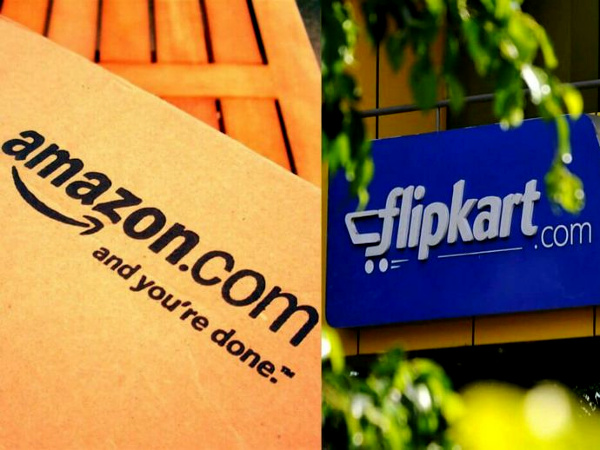The new e-commerce norms could be just the boost that the Startup India mission needs. By levelling the playing field for smaller, home-grown e-commerce firms, it promotes Indian entrepreneurs, may lead to more job creation and also prevent money from going abroad.
The potential impact of the policy is already worrying Amazon and Flipkart (76 percent owned by American retailer Walmart). According to a very senior executive with one of the two companies, it is very difficult to run a business under these guidelines, particularly the norms banning marketplaces having sellers whose ownership is fully or partially owned by these international players. Case in point, Cloudtail, a top seller on Amazon is partially owned by it.
Amazon and Flipkart together control nearly three-fourth of Indian e-commerce sales.
How will it help Indian ecommerce companies? With billions to spend through discounts given through the parent and its subsidiaries, Amazon and Flipkart have managed to nearly wipe out the once burgeoning homegrown e-commerce start-ups. This impacted jobs and livelihood.
With billions to spend through discounts given through the parent and its subsidiaries, Amazon and Flipkart have managed to nearly wipe out the once burgeoning homegrown e-commerce start-ups. This impacted jobs and livelihood.
Modi’s Startup India mission – one of the first policy decisions taken by the present government – was to build entrepreneurship and jobs in the country. But, that didn’t happen.
At its peak there were more than a couple of hundred e-commerce start-ups in the country. Many had to shut shop. This brought the number down to less than a hundred.
Just before Flipkart and Amazon monopolised the e-commerce market, KPMG had projected that by 2020, the e-tailing ecosystem would create over 10 million jobs, aided by the creation of a seller base of about 1.3 million. Logistics and warehousing alone would have opened up more than a million opportunities. Above all, 70 percent of the online sellers were expected to come from smaller towns.
But for Amazon and Flipkart, a large part of the logistics and warehousing businesses are captive operations. They also didn’t lead to as many jobs because the companies benefited from economies of scale. If the new policy leads to a revival of homegrown start-ups, we could see more jobs being created.
Secondly, unlike in the US, India is heavily dominated by e-commerce marketplaces, where hundreds of thousands of sellers can list their products and sell online. But only a few get the privilege of selling more, especially those who either use the services and infrastructure (such as Amazon Prime or Fulfilled-by-Amazon) or are subsidiaries. Other sellers account for only a fraction of online sales.
For companies like Snapdeal, Voonik, Limeroad, ShopClues, among others, which have foreign investments but are controlled by Indian entrepreneurs, the new guidelines will be a welcome change. As the large players sidelined the small players, the Indian-controlled e-commerce companies have had to cut jobs. A revival could see the jobs being restored as they become more competitive.
Most e-commerce companies rely on sellers for their catalogue. They didn’t have the money to buy inventory through subsidiaries. More e-commerce companies would mean more sellers, and each seller would create new employment.
Some might view this as Modi’s swadeshi move as the guideline impact foreign-owned e-commerce giants the most. However, this move is also expected to reduce Indian wealth going abroad as foreign companies won’t be able to use their affiliate firms or subsidiaries as sellers, and more local sellers and startup owners would get a chance to compete in an open and fair market.
Needless to say, Amazon and Flipkart would continue to fight for the last big consumer bastion available (Chinese e-commerce is controlled by Chinese companies).
Even if consumers might take an immediate hit as deep discounts go away, in the long run, they stand to benefit with increased competition.
Source: MC
Image Courtesy:Inc42
You may also like
-
Trade Connect E-platform For Exports Is Single Window, Fast, Accessible And Transformational: Shri Piyush Goyal
-
Dot Simplifies Approval Processes For Telecom Licenses And Wireless Equipment
-
Coal Production and Supply Trends on Positive Trajectory
-
Union Minister To Release Booklets On Promotion Of Indigenous Species & Conservation Of States Fishes
-
2nd India-Japan Finance Dialogue held in Tokyo on 6th September, 2024
